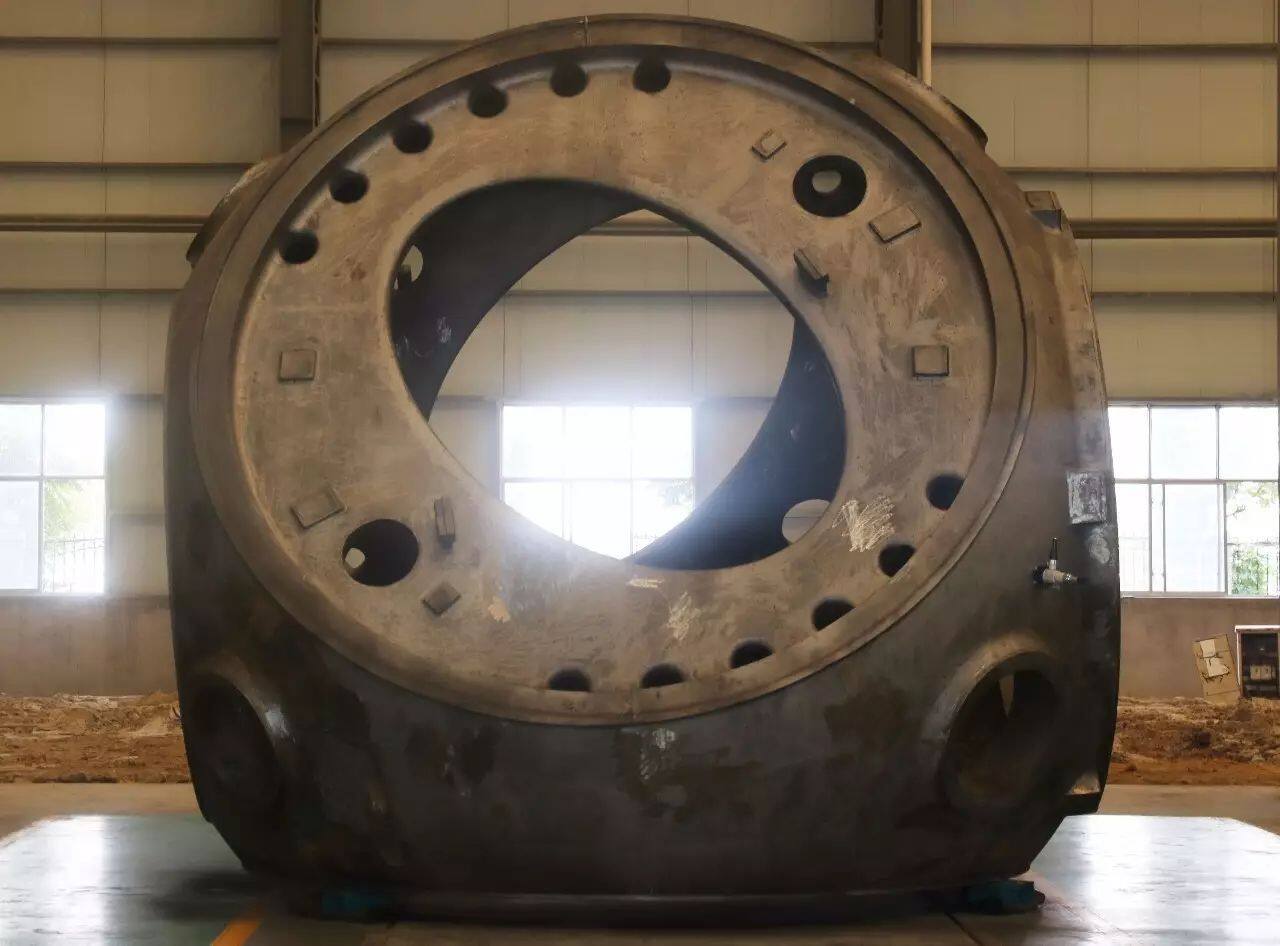Aṣiṣe ọna kika imeeli
emailCannotEmpty
emailDoesExist
pwdLetterLimtTip
inconsistentPwd
pwdLetterLimtTip
inconsistentPwd

Iroyin
How to Solve the Problem of White Cast Iron with High Processing Hardness?(1)
The mechanical properties of cast iron are unqualified, including strength, plasticity, toughness, and hardness, which do not meet the standard individually or completely. The hardness of sand cast gray iron products can often meet the technical requirements, and the Brinell hardness is controlled between hb160~hb240, which is conducive to machining based on ensuring the mechanical strength of products.
When the casting has large hardness defects, the macrostructure of the fracture surface of the casting, especially at the thin wall, is pitted or even white. Castings with large hardness defects will cause great processing difficulty, shrinkage cavity, shrinkage porosity, unqualified mechanical properties, etc., and the castings will be scrapped.

Causes of white cast iron defects in inoculated cast iron
- Molten iron cause
The causes of molten iron include chemical composition, smelting quality, and the heredity of raw materials.
First, the reasons for the chemical composition of molten iron. It refers to that the chemical composition of the product exceeds the specified standard range, the amount of conventional elements such as carbon and silicon is too low, and the comprehensive carbon equivalent is lower than% of the normal (such as carbon content is less than%, the initial silicon content is less than%, etc.);
In addition, the manganese content is too high, and the manganese content is more than%. The content of graphitized elements is low, while the content of anti-graphitized elements is high, resulting in a low precipitation capacity of graphite, and a large number of cementitious are formed during solidification and crystallization; Thus, the hardness of castings is improved. At the same time, when the mass fraction of Pb or Bi in gray cast iron is%, the tendency of white cast iron will be greatly increased; A very small amount of Bi and te can significantly improve the white tendency of gray cast iron.
Secondly, the influence of molten iron smelting quality. During smelting, the temperature of molten iron is low and the oxidation is serious. It causes a large amount of burning loss of alloy elements in molten iron, and the surface of molten iron is white and has poor fluidity; When the triangular test block is knocked in front of the furnace, the white mouth width of the fracture is too large and even full white mouth appears. During the composition test, the content of carbon and silicon is abnormally low due to excessive burning of elements; This kind of molten iron is unqualified. If cast into products, there will be defects such as high hardness, serious shrinkage, and porosity.
Moreover, the reason for the heredity of raw materials. The heredity of cast iron refers to that the structure of cast iron (such as graphite morphology, graphitization degree, white tendency, etc.) will change when changing from one metal charge to another, although the chemical composition of molten iron remains unchanged; This relationship between furnace charge and casting structure is called heredity.
Here is to see whether the hardness of pig iron, scrap steel, reheating material, and the alloy used in smelting is too large. Generally, qualified pig iron, scrap steel, and alloy will not have problems under the condition of batching; It mainly depends on whether the recycled materials used have defects of high hardness. For example, recycled materials with high hardness are widely used, and the Brinell hardness reaches above hb250 or even hb280. Even if the conventional chemical composition of the product is qualified and the smelting quality is not a problem, the hardness of the product is high and the comprehensive mechanical properties of the casting are unqualified.
- Causes of cooling conditions
The mechanism of high hardness caused by cooling conditions is that under the condition of rapid cooling, the alloy has high undercooling, strong internal nucleation and crystallization ability, poor graphite precipitation ability, high cementite content during crystallization, insufficient graphite precipitation, and even nondiffusive martensitic transformation during solidification; The tendency of white mouth in the casting matrix is large, and the hardness of the product is large.
This kind of defect is mainly caused by adjusting the thickness of sand, the high water content of sand, uneven grinding of sand, poor permeability due to the hardness of the mold cavity after molding, and too much water brushing in the mold. When molten iron enters the mold cavity, the volatile water vapor cannot be discharged smoothly in time, resulting in rapid cooling or local rapid cooling of molten iron in the mold cavity. In addition, low pouring temperature of molten iron, too short cooling time of castings in the mold, or premature sand falling are the main reasons for high hardness.
- Reason for heat treatment
During heat treatment of inoculated parts, poor stacking of castings, poor control of temperature and insufficient annealing time will cause high hardness of gray iron parts.
Searching for an iwachu cast iron, mini cast iron, borough cast iron supplier, wholesaler, manufacturer from China, you can get high-quality products at a nice price.

